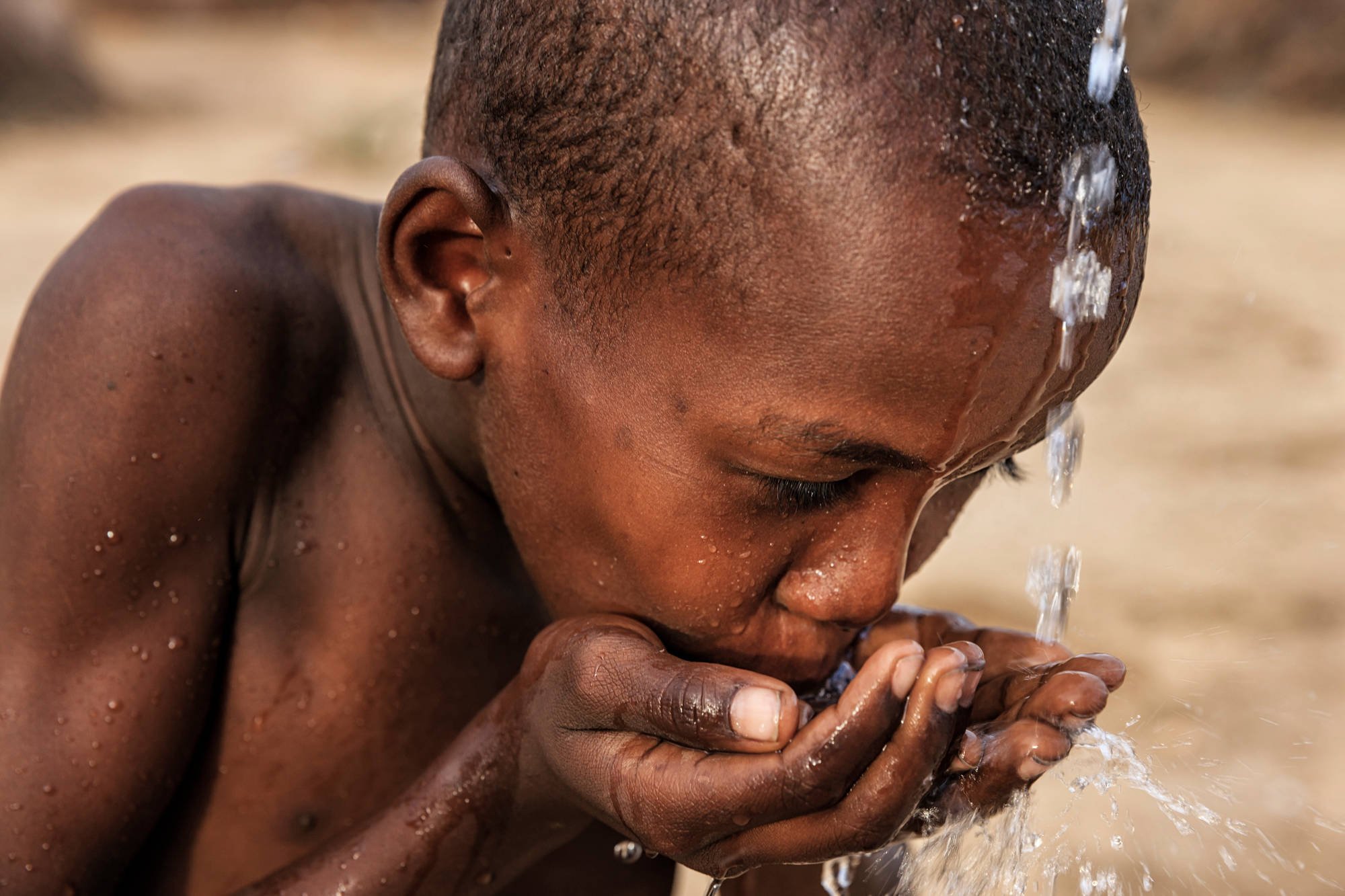-
Audit approach overview
Our audit approach will allow our client's accounting personnel to make the maximum contribution to the audit effort without compromising their ongoing responsibilities
-
Annual and short period audit
At P&A Grant Thornton, we provide annual and short period financial statement audit services that go beyond the normal expectations of our clients. We believe strongly that our best work comes from combining outstanding technical expertise, knowledge and ability with exceptional client-focused service.
-
Review engagement
A review involves limited investigation with a narrower scope than an audit, and is undertaken for the purpose of providing limited assurance that the management’s representations are in accordance with identified financial reporting standards. Our professionals recognize that in order to conduct a quality financial statement review, it is important to look beyond the accounting entries to the underlying activities and operations that give rise to them.
-
Other Related Services
We make it a point to keep our clients abreast of the developments and updates relating to the growing complexities in the accounting world. We offer seminars and trainings on audit- and tax-related matters, such as updates on Accounting Standards, new pronouncements and Bureau of Internal Revenue (BIR) issuances, as well as other developments that affect our clients’ businesses.
-
Tax advisory
With our knowledge of tax laws and audit procedures, we help safeguard the substantive and procedural rights of taxpayers and prevent unwarranted assessments.
-
Tax compliance
We aim to minimize the impact of taxation, enabling you to maximize your potential savings and to expand your business.
-
Corporate services
For clients that want to do business in the Philippines, we assist in determining the appropriate and tax-efficient operating business or investment vehicle and structure to address the objectives of the investor, as well as related incorporation issues.
-
Tax education and advocacy
Our advocacy work focuses on clarifying the interpretation of laws and regulations, suggesting measures to increasingly ease tax compliance, and protecting taxpayer’s rights.
-
Business risk services
Our business risk services cover a wide range of solutions that assist you in identifying, addressing and monitoring risks in your business. Such solutions include external quality assessments of your Internal Audit activities' conformance with standards as well as evaluating its readiness for such an external assessment.
-
Business consulting services
Our business consulting services are aimed at addressing concerns in your operations, processes and systems. Using our extensive knowledge of various industries, we can take a close look at your business processes as we create solutions that can help you mitigate risks to meet your objectives, promote efficiency, and beef up controls.
-
Transaction services
Transaction advisory includes all of our services specifically directed at assisting in investment, mergers and acquisitions, and financing transactions between and among businesses, lenders and governments. Such services include, among others, due diligence reviews, project feasibility studies, financial modelling, model audits and valuation.
-
Forensic advisory
Our forensic advisory services include assessing your vulnerability to fraud and identifying fraud risk factors, and recommending practical solutions to eliminate the gaps. We also provide investigative services to detect and quantify fraud and corruption and to trace assets and data that may have been lost in a fraud event.
-
Cyber advisory
Our focus is to help you identify and manage the cyber risks you might be facing within your organization. Our team can provide detailed, actionable insight that incorporates industry best practices and standards to strengthen your cybersecurity position and help you make informed decisions.
-
ProActive Hotline
Providing support in preventing and detecting fraud by creating a safe and secure whistleblowing system to promote integrity and honesty in the organisation.
-
Accounting services
At P&A Grant Thornton, we handle accounting services for several companies from a wide range of industries. Our approach is highly flexible. You may opt to outsource all your accounting functions, or pass on to us choice activities.
-
Staff augmentation services
We offer Staff Augmentation services where our staff, under the direction and supervision of the company’s officers, perform accounting and accounting-related work.
-
Payroll Processing
Payroll processing services are provided by P&A Grant Thornton Outsourcing Inc. More and more companies are beginning to realize the benefits of outsourcing their noncore activities, and the first to be outsourced is usually the payroll function. Payroll is easy to carve out from the rest of the business since it is usually independent of the other activities or functions within the Accounting Department.
-
Our values
Grant Thornton prides itself on being a values-driven organisation and we have more than 38,500 people in over 130 countries who are passionately committed to these values.
-
Global culture
Our people tell us that our global culture is one of the biggest attractions of a career with Grant Thornton.
-
Learning & development
At Grant Thornton we believe learning and development opportunities allow you to perform at your best every day. And when you are at your best, we are the best at serving our clients
-
Global talent mobility
One of the biggest attractions of a career with Grant Thornton is the opportunity to work on cross-border projects all over the world.
-
Diversity
Diversity helps us meet the demands of a changing world. We value the fact that our people come from all walks of life and that this diversity of experience and perspective makes our organisation stronger as a result.
-
In the community
Many Grant Thornton member firms provide a range of inspirational and generous services to the communities they serve.
-
Behind the Numbers: People of P&A Grant Thornton
Discover the inspiring stories of the individuals who make up our vibrant community. From seasoned veterans to fresh faces, the Purple Tribe is a diverse team united by a shared passion.
-
Fresh Graduates
Fresh Graduates
-
Students
Whether you are starting your career as a graduate or school leaver, P&A Grant Thornton can give you a flying start. We are ambitious. Take the fact that we’re the world’s fastest-growing global accountancy organisation. For our people, that means access to a global organisation and the chance to collaborate with more than 40,000 colleagues around the world. And potentially work in different countries and experience other cultures.
-
Experienced hires
P&A Grant Thornton offers something you can't find anywhere else. This is the opportunity to develop your ideas and thinking while having your efforts recognised from day one. We value the skills and knowledge you bring to Grant Thornton as an experienced professional and look forward to supporting you as you grow you career with our organisation.
THE present widespread presence of homeless and informal settlers in our society is another tormenting face of dehumanizing poverty in our country. Improving their current condition clearly needs direct government intervention. Otherwise, this problem will persist for a long time. The normal course of events cannot make it disappear or even mitigate it to any reasonable extent.
Current available information about the homeless and informal settlers appears to be incomplete and dated. As such, these data may not give a reasonable measure of the scope of these two problems. Nevertheless, these may be helpful in providing an indication of the government assistance needed to deal effectively with these serious and utterly degrading human problems.
'Families of the street'
A summary brief prepared by an American public policy advocate entity in July 2020 indicates that there are 4.5 million homeless persons in the Philippines. Of this number, 25 percent, or about a million persons, are "families of the street," or those who live in the street permanently. The balance includes "families on the street," who are either displaced from their original communities because of natural disasters and those from rural areas who venture to the cities because of hardship in their original communities. These "families on the street" eventually return to their original communities. Of the total homeless persons, it is estimated that there are 250,000 to 1 million homeless children.
Regarding poor informal settler families (ISFs), in a paper written by a Filipino author attached to a report, "Policy Paper for the National Summit on Housing and Urban Development," prepared by the World Bank in July 2016, the author estimates that there were about 1.6 million poor ISFs in the Philippines in 2012.
Special census
If I were the next president, I would commission a special census of all the homeless and the poor ISFs all over the Philippines. This census will provide an up-to-date and accurate basis for developing the more specific nature and extent of assistance that the government can provide to these poor members of our society and thereby break the cycle of poverty in these sectors.
The homeless persons are the more urgent of these two problems. We need to provide homeless citizens a much better and productive future so they can contribute more positively to nation-building. In providing the solutions, we will separate the homeless children from the homeless families. On the other hand, we will not make a distinction between "of the street" and "on the street" homeless families.
For the homeless children, our administration will provide them with permanent shelter until they reach adulthood and can take care of themselves. They will be sent to school to finish high school via the vocational stream and get them qualified and licensed by the Technical Education and Skills Development Authority (Tesda) for their chosen career path. The government will help them find their first job after training. Thereafter, they will be on their own.
Assuming that altogether there are 500,000 homeless children and living cost per person of P26,000 per year implicit in the threshold poverty income level of P129,000 per year for a family of five, the living cost of taking care of all these homeless children - assuming for the time being that it will be done in a single sweep - is P13 billion per year, excluding the cost of physical facilities.
Based on the estimated 4.5 million homeless persons, after deducting the 500,000 homeless children, there remains a balance of four million homeless individuals. Using the standard number of five persons per family, these homeless persons are equivalent to 800,000 homeless families.
For these homeless families, the issue is a question of housing. However, there are other considerations that need to be dealt with first.
Training
The first step is to enrol them under the Siguradong Sahod program (as discussed in a previous article in this series) and require the parents to keep their children in school. For the adults, including adult children, they will be required to undergo training with Tesda or other public vocational schools as their skill suitability may require.
For those who need it, the adults will be required to attend refresher studies in reading, writing and arithmetic under existing adult education programs in their respective locations. All members of each family will be required to attend classes in hygiene and upkeep and cleanliness of homes to be held at the premises of public schools within their localities. Subsequently, each family will be provided with suitable housing under the same program for ISFs. They will then be on their own.
As to determining the cost of the foregoing assistance, it can be assumed that the homeless families are included in the estimated 3 million families belonging within the poverty threshold who are qualified to receive guaranteed basic income under the Siguradong Sahod program. As to the costs of the various training, these will be absorbed under the budget of the respective government departments and agencies that will provide the training.
As for the poor ISFs, the present thrust of government housing assistance policy does not reach them. The present policy is to provide low interest rate financing to those who buy government-built or privately built housing units. It also makes available low-cost housing units for sale or rent. Such a policy does not help the poor ISFs. They simply cannot afford to buy, even at low interest rates, or rent government-built or privately built housing units.
Of course, when an occasion arises that some ISFs must be relocated to clear the land to make it available for use for preferred development projects, they are given free alternative housing. In any case, these occasions are rare. There is simply no dedicated housing assistance for the poor ISFs and, of course, for the homeless families as well.
Direct housing grants
My administration will accept and recognize the principle that the homeless families and poor ISFs must be given direct housing grants. Otherwise, their housing problem can never be solved. Even the World Bank Policy Paper mentioned earlier recommends that the government must rethink its role in housing finance and regard housing for the extremely poor as part of its social program. This comment exactly coincides with my own thinking.
For this reason, we will give almost-free housing to the homeless families and poor ISFs in the city or near the city where they live. The cost of a housing unit as estimated by the Housing and Urban Development Council approximates P500,000. (The estimated cost of an apartment unit in a five-story building is even lower, at P402,000.)
Based on the estimated number of homeless families of 800,000 and poor ISFs of 1.6 million - or a total of 2.4 million families - the total cost to house this total number of families is P1.2 trillion. This amount may be reduced because of the remarkably high scale of production that is required.
The housing units to be given to the homeless families and poor ISFs will not be entirely free. We plan to require the beneficiaries to pay 12 percent of the cost, interest free, monthly over 10 years, or P1,000 a month - mainly since on that basis they will acquire a feeling that they also have invested in the property and therefore may inspire them more to take good care of it. They cannot sell the property during this 10-year period or longer if they are unable to fully pay the cost of their respective units within the specified term.
The foregoing assistance to both the homeless and the poor ISFs cannot obviously be all done in one sweep, not only for budgetary but also for practical considerations. When the special census is completed, we will then be able to establish a reasonable implementation time schedule and estimate the corresponding annual budgetary requirements, including those for the needed physical facilities, for the entire implementation period. As it appears, I believe all these undertakings can be done within a maximum period of 10 years.
On a 10-year implementation basis, the annual budgetary requirements will be much reduced to exactly one-tenth per year of the estimated total cost for housing units for the homeless families and poor ISFs, or P120 billion per year for 10 years. For the homeless children, the comparative equivalent is P1.3 billion in the first year, increasing cumulatively up to some point and then decreasing continuously as the children regularly exits the program until the last batch finishes the program. Obviously, the program for the homeless children can be accelerated to much less than 10 years.
Moreover, realistically, the number of beneficiaries during the first two or three years of all these programs would be smaller than ten percent of the total beneficiaries for various practical reasons. As the necessary systems and processes are installed and made more effective and as valuable experience is obtained, the implementation pace of the programs will continuously accelerate. In terms of budgetary requirements, therefore, the fund requirements for the initial years will be lower. As the economy grows annually as intended, the cost of these programs will become much more affordable. Nevertheless, we will give these programs priority in fiscal budgeting.
Effective and efficient management is an important key factor in implementing these programs. We will draw experienced executives from the private sector to implement them. The program for homeless children may also be contracted to private contractors for more effective and efficient results.
Land issues
Much of the difficulties in producing housing on a large-scale basis, is the availability of supply of suitable land, especially when complying with the in-city and near-city location requirements. For this reason, we will organize a separate special group to anticipate and deal with all the land issues so that the land factor does not delay the implementation of the housing program.
These programs have consequential policy issues - those pertaining to new homeless persons and ISFs that may add to the existing ones. We will study these matters carefully and discuss them with the local government units for purposes of detecting the newcomers and dealing with them separately or get them enrolled in the programs. In any event, as the economy grows, we expect such problems to be substantially reduced and any new cases dealt with in the then normal course of business.
Everyone seems to agree that housing is a basic human right, but they just give that principle lip service. We will not. We will make it a reality.
There is a philosophical basis for this assistance to the homeless and informal settlers. Before the Spaniards came, all our ancestors had free use of the country's land. But that changed when the then authorities gave exclusive rights to select people, thus dispossessing most of our ancestors. This housing assistance is merely a token restitution of those rights to the present descendants of our ancestors.
As published in The Manila Times, dated 30 June 2021




